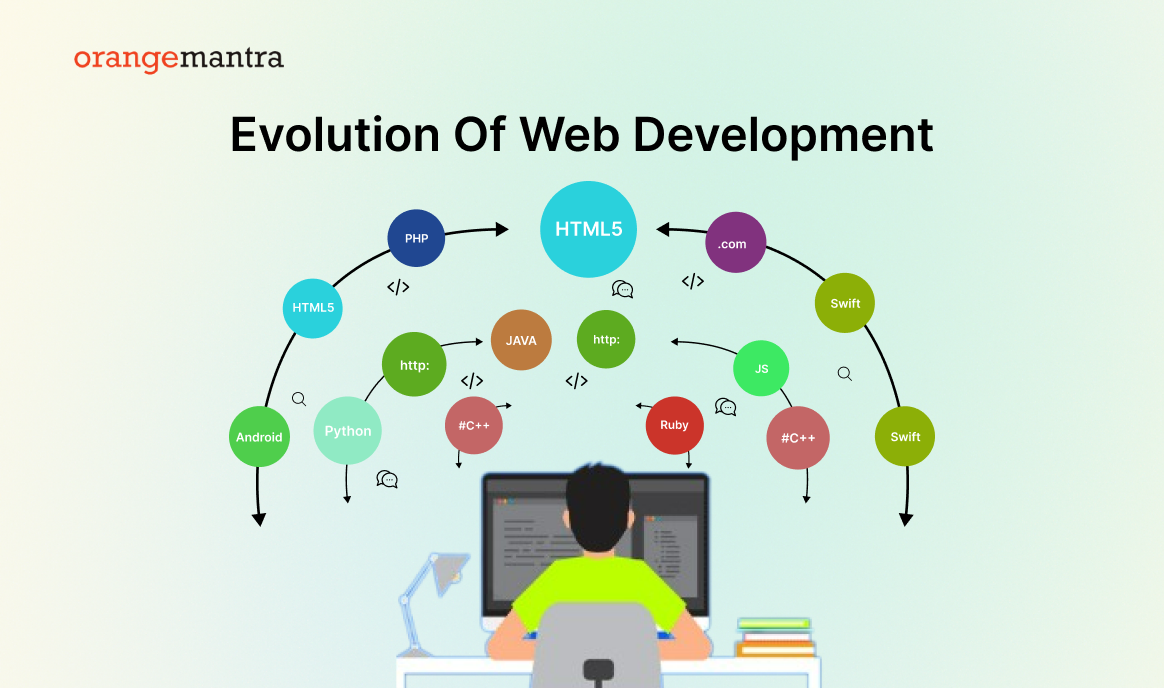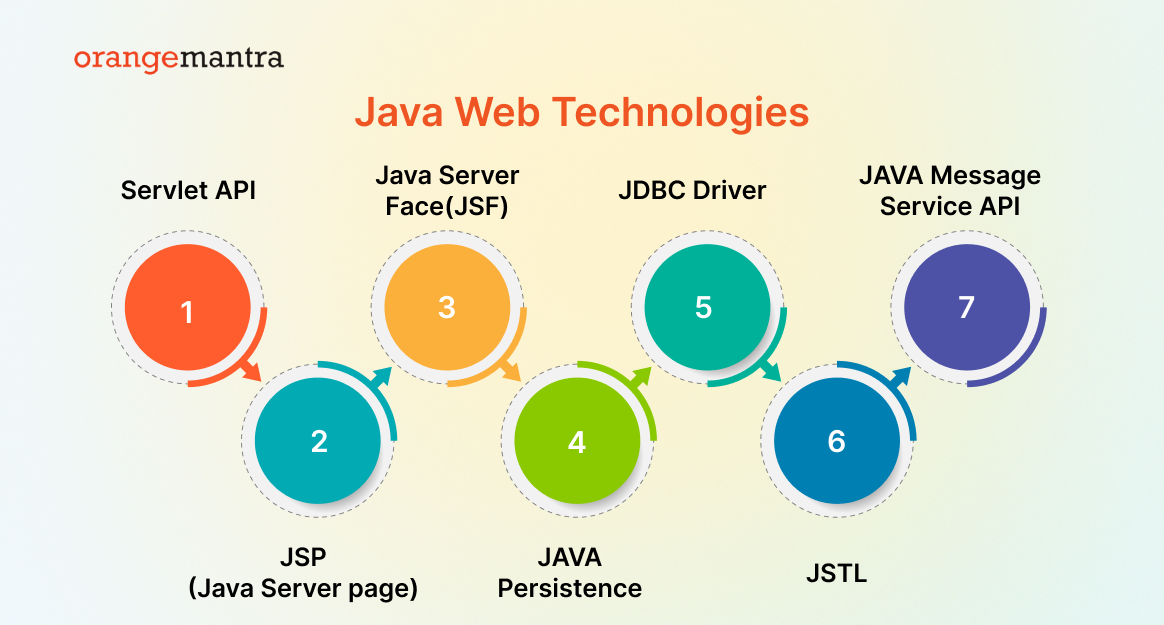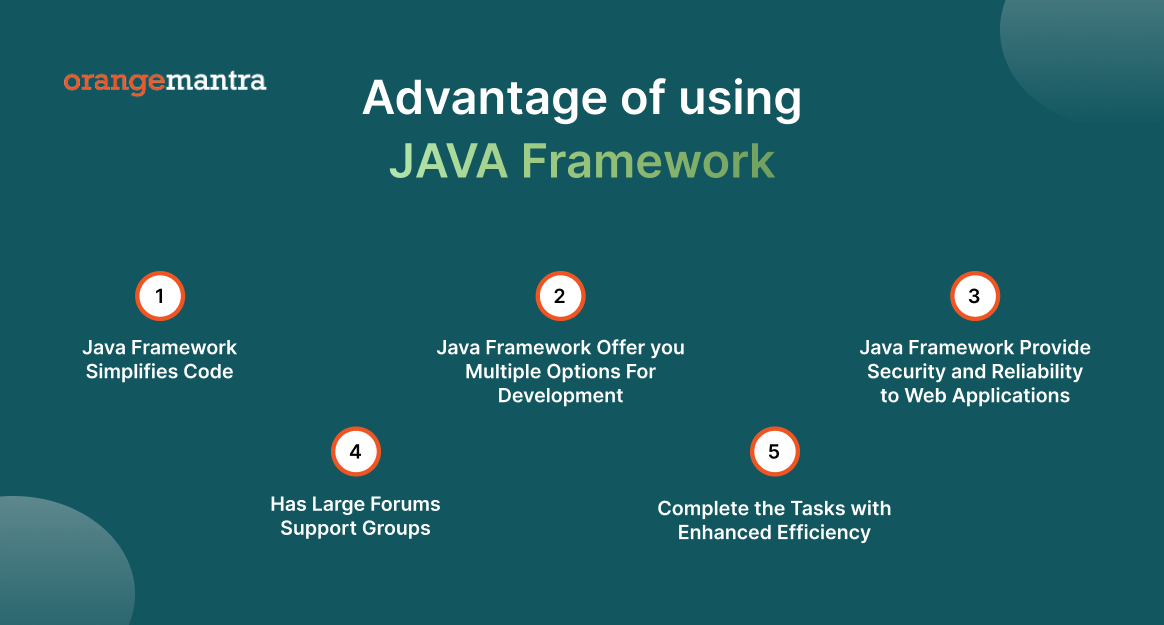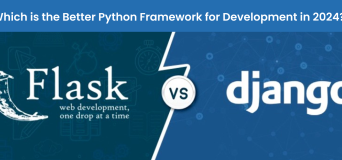Web application development is becoming a crucial element for companies and organizations looking to have a strong online presence. Java, a sturdy and flexible programming language, has become a favorite among developers because of its many benefits and wide range of capabilities. So, We will explore Java Technologies in Web App and the advantages of Java web development as it relates to creating outstanding online apps in this blog.
The process of using the Java programming language to generate dynamic, interactive online applications is known as Java web development. These applications, which serve a variety of sectors and areas, may vary from simple web pages to intricate web-based systems. So, it offers programmers a dependable and adaptable platform that makes it simple for them to create scalable, secure, and feature-rich web applications.

Java web development evolution:
It has had impressive growth and progress in the field of web development since its start in the middle of the 1990s. Here are some interesting data points that illustrate Java’s development history for web applications:
- James Gosling and his colleagues at Sun Microsystems released Java in 1995.
- Due to its write-once-run-anywhere approach, which allowed programmers to create code once and distribute it across several platforms, it gained widespread appeal
- Java has regularly ranked among the best programming languages and is favored by programmers all around the globe.
- More than 8 million developers are actively using Java as of 2021, giving the language a sizable user base.
- Many well-known companies, such as Google, Amazon, and LinkedIn, depend on Java for the creation of their online applications.
What does Java technologies in web applications mean?

Java includes a wide range of technologies that provide developers the freedom to create very effective and useful web apps. Some essential Java technologies often utilized in creating web applications include:
- Java Server Pages (JSP): JSP makes it simpler to produce dynamic online content by allowing Java code to be embedded into HTML pages.
- Servlets: Servlets are Java classes that manage HTTP requests and answers on a web server. They provide the structural support for web application functionality
- Java Server Faces (JSF): Using reusable components and a Model-View-Controller (MVC) architecture, JSF is a Java-based web framework that makes it easier to create user interfaces for online applications.
- A server-side component architecture called corporate JavaBeans (EJB) makes it easier to create scalable and transactional corporate web applications
- Spring Framework: With its dependency injection and inversion of control characteristics, the Spring Framework—a widely used Java framework—simplifies the creation of online applications.
- Hibernate: Hibernate is an object-relational mapping (ORM) framework that hides the underlying SQL operations to let java developers interface with databases naturally.
What advantages can Java web development services offer?

For companies looking to build reliable and scalable online applications, Java web development services provide a wide range of advantages. Java has several benefits for creating web apps, including:
-
Platform Independence:
Java’s cross-platform functionality enables web applications to operate without a hitch on a variety of operating systems and gadgets, guaranteeing a larger audience reach and flexibility.
-
Versatility and Flexibility:
Java’s enormous selection of libraries, frameworks, and technologies gives developers a great deal of freedom when it comes to developing and putting different web application features into practice.
-
Strong Security Measures:
Java Technologies in Web App has strong security features including built-in encryption, sandboxing, and authentication procedures to provide a high degree of protection for online applications against possible attacks.
-
Excellent Performance and Scalability:
Java allows the development of web applications that give great performance even under severe loads because of its effective memory management and multithreading capabilities. Custom web app development services provide better performance and Scalability.
-
Assistance from a Large and Active Developer Community:
Java Technologies in Web App has a large and active developer community that provides a plethora of tools, documentation, and assistance. This makes it simpler for developers to solve problems and remain current with new developments.
The creation of Java web applications has become essential to contemporary software development. However, different technologies may be used by developers to build robust and engaging online apps. 8 Java web app development technologies will be covered in this blog, along with their actual applications.
Top 8 Java Technologies in Web Apps and its uses
1- Servlet API for Java
- Java classes called Servlets are used to create web content on the fly.
- They manage queries and answers on a web server.
- Creating dynamic web pages, processing forms, and managing sessions are examples of practical applications.
2- Java Server Pages (JSP)
- Java code may be inserted into HTML pages using JSP.
- Web application development is made easier by it.
- Utilization in practice creation of dynamic content, database access, and logic execution.
3- Technology Challenges Java Server
- JSF is a framework for creating web applications’ user interfaces.
- Complex online form handling is made easier by it.
- Practical applications include creating dynamic and user-friendly online interfaces and managing complicated data submissions.
4- Message Service API for Java
- Applications may produce, transmit, receive, and read messages thanks to JMS.
- Asynchronous communication between components is supported.
- Building strong event-driven structures and messaging and communication systems are two examples of practical usage.
5- Java Persistence API
- The JPA standard API is used in Java applications to manage relational data.
- The use of databases and object-relational mapping is made simpler.
- Data persistence, database access, and data integrity management are examples of practical uses.
6- Java API’s XML Processing
- An industry-standard method for reading, writing, and manipulating XML documents is offered by the XML Processing API.
- It supports several XML technologies, including DOM and SAX.
- Use in the real world creating and parsing XML files, setting up online services, and data transformation.
7- Standard Tag Library for Java Server Pages
- For JSP pages, JSTL offers a collection of tags and functions.
- Iteration and conditional processing are two frequent web application chores that are made easier by it.
- Use in the real world aiding JSP development via templating and reusable code.
8- Java Naming and Directory Interface
- Java programs may use JNDI to access naming and directory services.
- It offers a method for finding different resources, including databases and message queues.
- Accessing business resources, managing dispersed applications, and connecting to databases.
Lastly, numerous tools are available for Java web application development that simplify the construction of powerful and feature-rich web apps. Each technology, from Java Naming and Directory Interface to Java Servlet API, has a distinct function and enables developers to create intricate web solutions. Java Development Company in India can be much more productive and efficient for your business if they provide effective transformation.
Wrapping Up!
Finally, Java web development provides a potent and thorough method for creating dynamic online applications. Java is a great option for companies looking to build reliable and scalable web applications because of its vast ecosystem of tools, adaptability, and security. So, by using Java in web app development, organizations may take advantage of many opportunities and succeed in the fiercely competitive online environment.
FAQ
-
What Java Technologies Are Frequently Employed in Web Development?
Java Servlets, JavaServer Pages (JSP), JavaServer Faces (JSF), Spring Framework, Hibernate, and other Java technologies are often utilized.
-
How Are Java Servlets Used in Web Development?
Java Servlets are classes that process data from incoming HTTP requests and provide dynamic answers. They are used in the development of web applications’ backend logic.
-
How Do Java Server Pages (JSP) Affect the Development of Web Apps?
JSP enables the embedding of Java code inside HTML pages, allowing the creation of dynamic content. Combining Java with HTML makes the process of making dynamic web pages simpler.
-
How Does the Spring Framework Affect the Development of Web Apps?
By offering capabilities like dependency injection, aspect-oriented programming, and MVC design implementation, the Spring Framework makes it easier to create sophisticated online applications.
-
How Does Java Web Development Fit with Hibernate?
An Object-Relational Mapping (ORM) framework called Hibernate makes it easier to connect with databases. It reduces manual database management by mapping Java objects to database tables.
-
What is the JSF Framework (Java Server Faces)?
JSF is a web framework for creating user interfaces that are component-based. It handles UI component states across requests and makes UI component construction simpler.
-
Can Frontend and Backend Development Be Done in Java?
Yes, the backend development of web applications is largely done in Java. JavaScript is increasingly often used in conjunction with HTML and CSS for front-end development.
-
What Benefits Can Java Bring to the Development of Web Apps?
Excellent community support, platform freedom, a large selection of libraries and frameworks, excellent security features, and scalability are some benefits.
-
Does Using Java for Web Development Have Any Drawbacks?
Beginners may find it more difficult to understand Java programs, and certain frameworks may add complexity. Additionally, as compared to other languages, Java programs often have a larger memory footprint.























